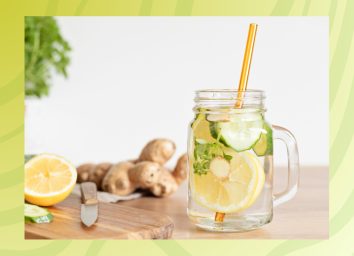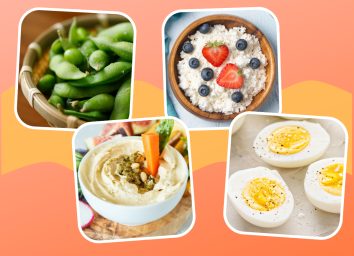The 9 Most Essential Vitamins You Need in Your Diet, According to Yale Experts
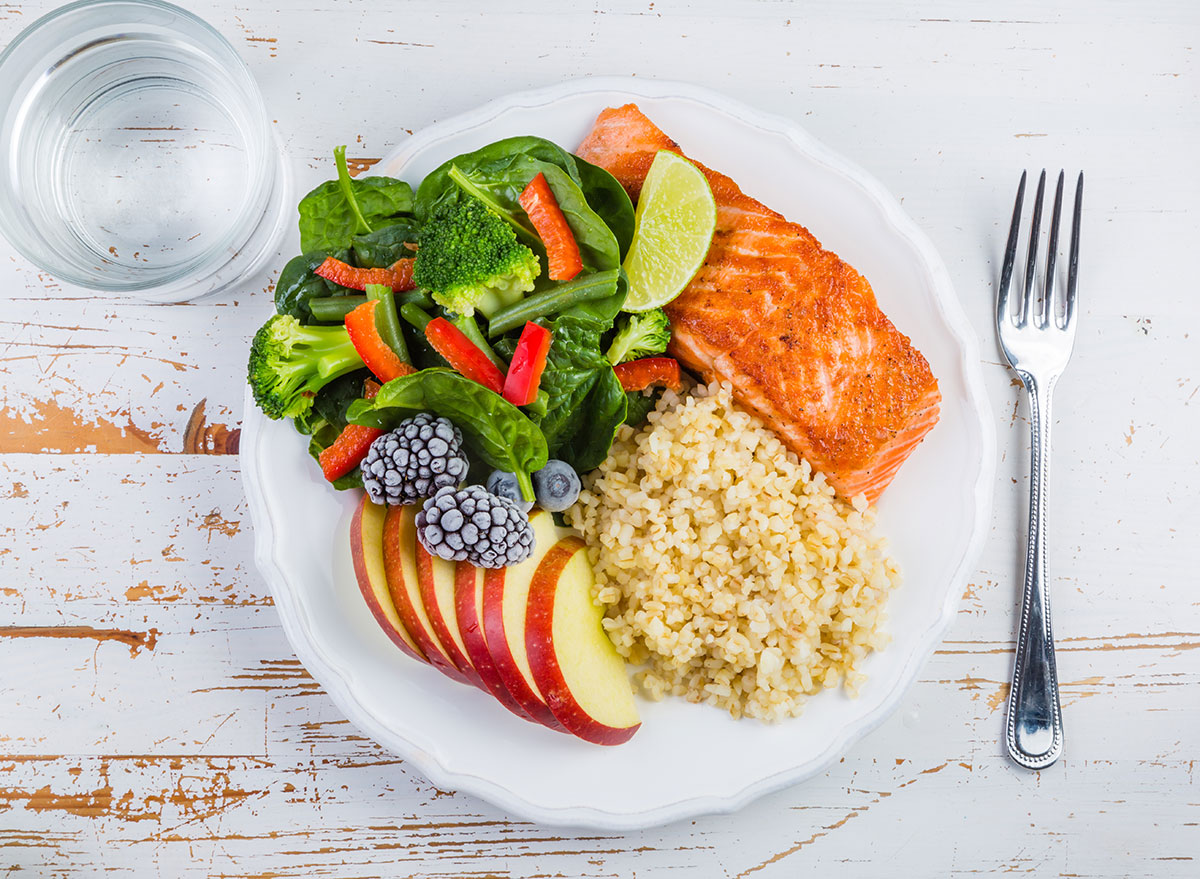
Vitamins are an essential part of how our body functions, but there is a lot of misunderstanding and misinformation about how to best get them into your cells and throughout your body.
Our parents and caretakers routinely reminded us that eating our vegetables was essential to getting all of the healthy vitamins and minerals we need to grow. Oftentimes, we might think taking a supplement is the best way to get essential vitamins the body needs, but sourcing these nutrients through food is even more effective.
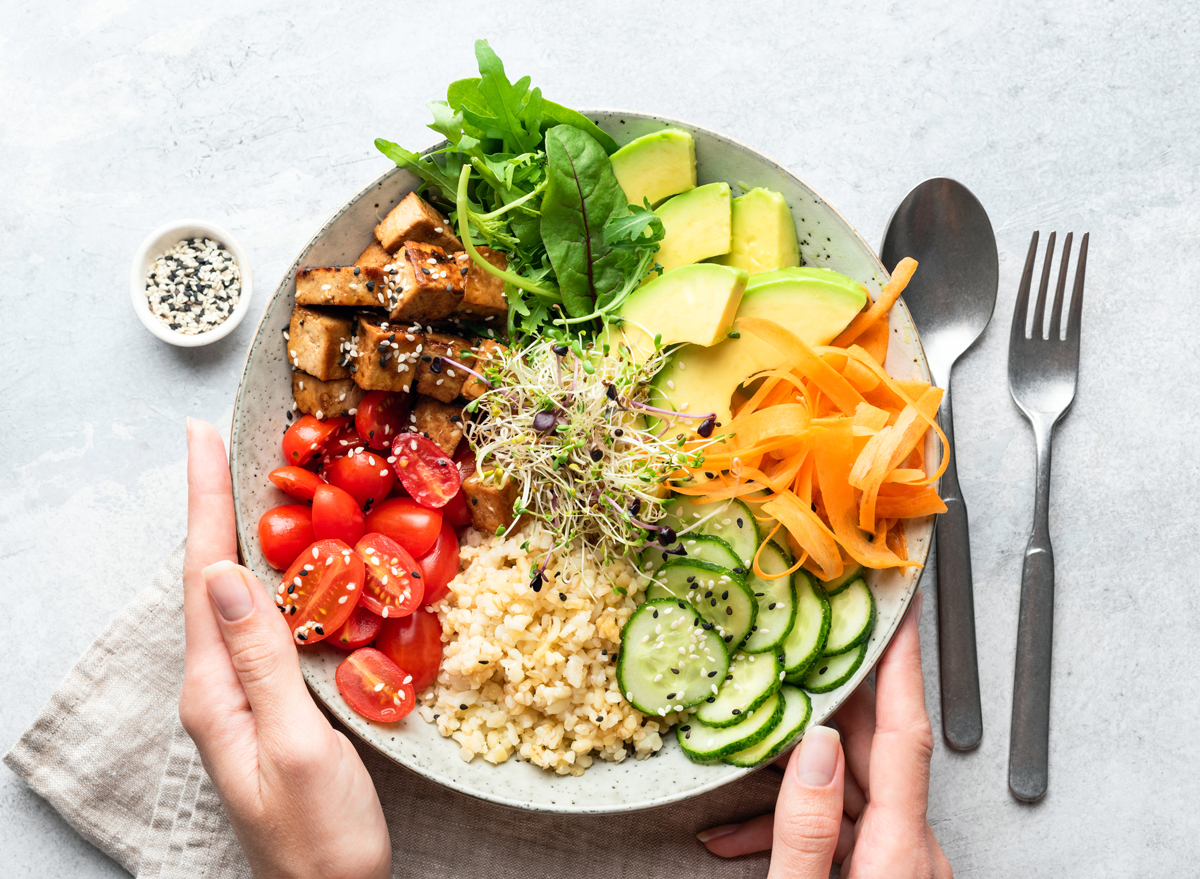
Many times vitamins are advertised as "natural" but the most natural approach is how people have done it for thousands of years—a healthy and nutritious diet filled with diverse and colorful fruits and vegetables. The more colors and varieties of produce you are eating, the more likely you are to consume a scope of key vitamins. Purchasing from small local farms that practice organic techniques can also help to ensure that your produce is as nutrient-dense as possible.
Who may require supplementation?
There are certainly times when people may require vitamin supplementation because of a circumstance or condition that prevents them from adequately obtaining them. For example, people who follow a vegan diet may need to supplement with vitamin B12 (which is largely found in animal-based protein and sources) or people with cystic fibrosis may require supplements because they do not properly absorb many vitamins.
It is important to keep in mind that most supplements did not originate in pill form but, instead, are derived from traditional diets, such as the Mediterranean diet, that kept people healthy for thousands of years. While some people may need to take their vitamins in a pill form, for the average person, food can often be your medicine.
Below, you will see nine vitamins your body needs as well as several foods that are rich in each. Then, don't miss The 7 Healthiest Foods to Eat Right Now.
Vitamin A
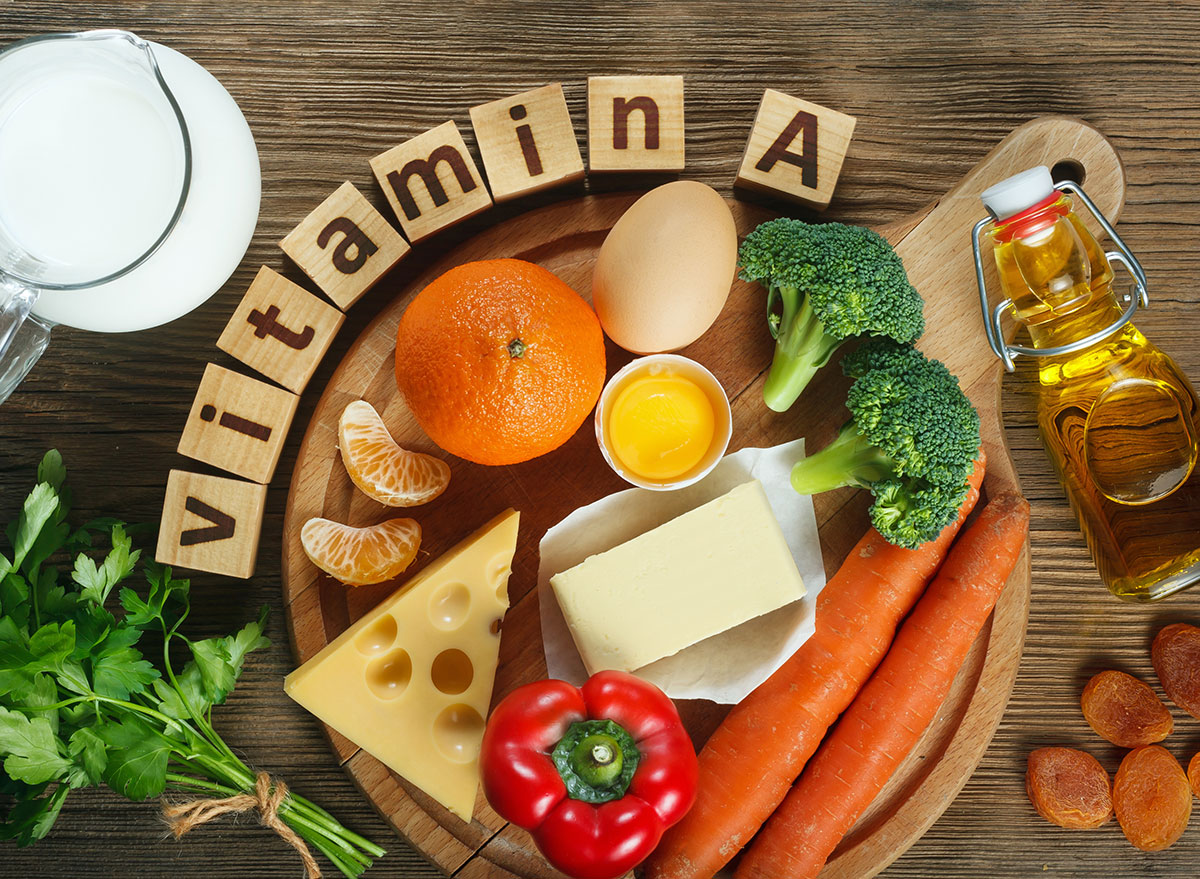
Vitamin A isn't actually a single vitamin but a whole family of different ones sometimes referred to as 'retinoids' such as retinol and carotenoids, including alpha-carotene and beta-carotene.
Function in the body: Vitamin A is important in keeping our reproductive and immune systems functioning and helps to keep our kidneys, heart, and lungs working well. It's also essential for normal bone and tooth development. Another important job that vitamin A carries out is that it helps our eyes allow us to see in dark or dim light.
Risks of deficiency: The risk of vitamin A deficiency is pretty rare in well-nourished populations (such as the U.S.) because vitamin A is stored in the body, particularly in the liver. However, certain conditions such as pneumonia, urinary tract infections, cancer, and prostate disease may cause your body to excrete too much vitamin A.
People with fat malabsorption may not be able to absorb enough vitamin A and certain medications may also interfere with vitamin A absorption, such as cholestyramine and orlistat. A lack of vitamin A can cause your immune system to function poorly. It can also cause a number of eye diseases (such as blindness), poor bone growth, and skin problems at your hair follicles.
Risks of overuse: Vitamin A is stored in fat in the body, therefore, too much of the vitamin can lead to accumulation and toxicity. Symptoms include headache, double vision, tiredness, nausea, vomiting, or vertigo. Too much vitamin A can also lead to osteoporosis, bone fractures, and liver toxicity. Larger than recommended doses of vitamin A may cause birth defects, and so pregnant women or women of childbearing age should not intake more than the RDA (Recommended Daily Allowance). Beta-carotene toxicity is much less likely, but eating large amounts of carrots daily can lead to yellow-orange skin color changes.
Top foods with vitamin A:
- Beef liver (3 oz cooked)
- Baked sweet potato
- Frozen spinach (½ cup cooked)
- Raw carrots
- Skim milk fortified with vitamin A
Vitamin C
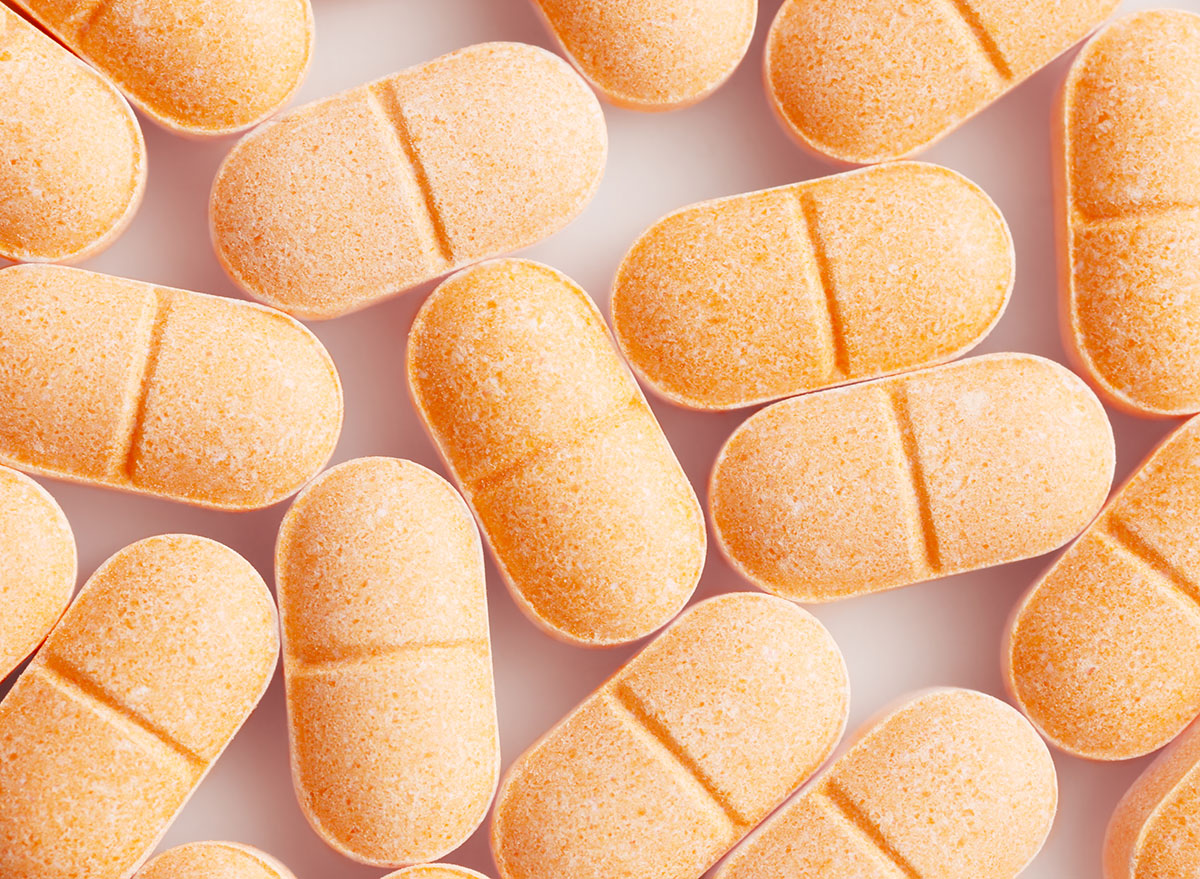
Vitamin C is also known as ascorbic acid and is key for immune function.
Function in the body: Vitamin C is important in the growth and repair of tissue and helps to maintain healthy skin, teeth and bones. Vitamin C is also an antioxidant that helps protect our cells from being damaged by free radicals, toxins, and radiation. Vitamin C can also help absorb iron from food in the intestines. Despite being highly advertised for preventing and treating the common cold, good data to support this claim is still unavailable.
Risks of deficiency: Deficiency of vitamin C can lead to a condition known as scurvy. Scurvy can present with fatigue, gum swelling, corkscrew hairs, and poor wound healing. It was common many years ago among sailors who did not have access to fresh fruits on long journeys. Scurvy is very rare in the U.S. because only a very small amount of Vitamin C is needed from a normal diet to prevent a deficiency.
Risks of overuse: Vitamin C is a water soluble vitamin and is not stored in the body, which just means that excess vitamin C is eliminated through urine. Large doses can still cause side effects, including nausea, stomach cramps, diarrhea, and more severely, can lead to the development of kidney stones. Patients with diabetes, recurrent kidney stones and poor kidney function should avoid high doses of vitamin C due to increased risk and complications of kidney stones.
Top foods with vitamin C:
- Raw red peppers (½ cup)
- Orange juice (¾ cup)
- Kiwi (one medium)
- Frozen broccoli (½ cup cooked)
- Baked white potato
Vitamin D
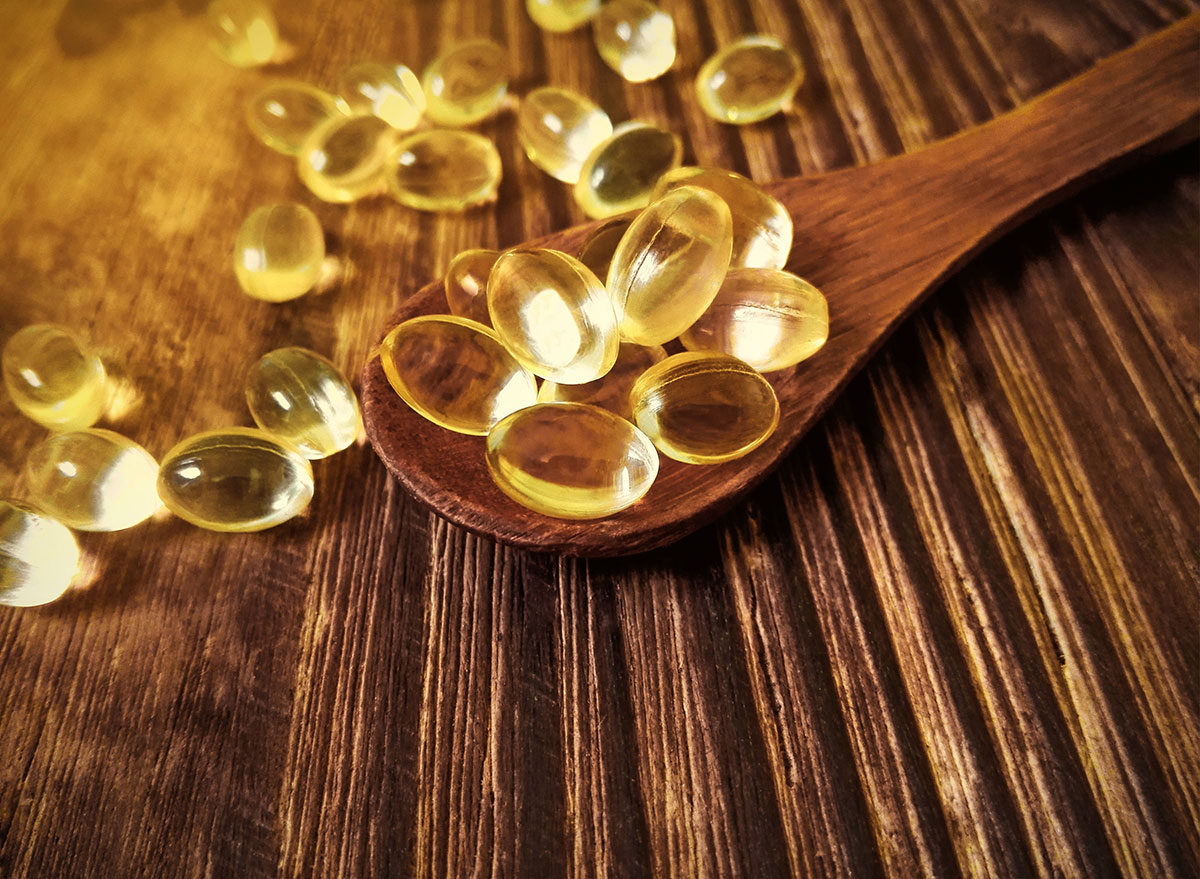
Vitamin D is also known as calciferol. Research has shown that vitamin D can play a vital role in supporting the immune system and may help to mitigate the severity of symptoms associated with COVID-19.
Function in the body: Vitamin D seems to have an endless number of functions in our body. These include bone mineralization and helping to maintain normal calcium levels in our blood. It also helps to reduce inflammation throughout the body and to maintain healthy blood sugar levels.
Risks of deficiency: Vitamin D deficiency has been associated with everything from cancer to depression, just to name a few. Muscle weakness from Vitamin D deficiency can lead to an increased risk of falls. In young and developing children it can cause a condition called rickets that leads to poor bone development.
There are many people at risk for low vitamin D including people who do not get a lot of exposure to sunlight, older people whose skin may not be able to make vitamin D as efficiently, and people with poor kidney or liver function who may not be able to convert Vitamin D to the active forms needed in the body. Breastfed babies are also at risk for vitamin D deficiency because breast milk does not contain enough vitamin D.
Risks of overuse: Vitamin D toxicity usually develops from taking too many supplements. This is because naturally occurring vitamin D is not common in foods, so it's hard to get too much from our diet. Our skin is also able to make vitamin D upon exposure to the sun, but our body is good at regulating the amount of vitamin D that is produced. Excess vitamin D can lead to the build-up of large amounts of calcium, called hypercalcemia. This can lead to headaches, loss of appetite, nausea and vomiting, weakness, confusion, and increased urination. In more serious cases it can cause irregular heartbeat, kidney stones, and kidney failure.
Top foods with vitamin D: Vitamin D can be one of the more challenging vitamins to get into your diet. In fact, many food sources of vitamin D are actually fortified with it, meaning that it was added to the natural food source. There are however several foods that are naturally rich in vitamin D.
- Cod liver oil (1 tablespoon)
- Farmed rainbow trout (3 oz cooked)
- Sockeye salmon (3 oz cooked)
- Skim milk fortified with vitamin D (1 cup)
- Orange juice fortified with vitamin D (1 cup)
- Breakfast cereals fortified with vitamin D
Bottom line: One of the best ways to get your vitamin D naturally is from the sun. The sun helps to convert cholesterols in your skin to vitamin D3. There is, of course, a balance between protecting yourself from skin cancer and getting adequate vitamin D. The good news is that people who use sunscreen have not been shown to be at increased risk for vitamin D deficiency.
Vitamin E

Vitamin E is also known as alpha-tocopherol.
Function in the body: Vitamin E supports our blood vessels by helping them to widen, and prevent clots from forming. Vitamin E is also an antioxidant, capturing free radicals that can damage our cells, playing an important role in our immune system.
Risks of deficiency: Vitamin E deficiency is very rare but can result in nerve or muscle damage, causing loss of feeling, or muscle weakness. It can also cause the immune system to weaken and is associated with a type of anemia called hemolytic anemia. Vitamin E deficiency can occur in patients who do absorb fat normally, such as in Crohn's disease or cystic fibrosis.
Risks of overuse: Vitamin E toxicity can cause nausea, diarrhea, intestinal cramps, headache, fatigue, and weakness. More serious consequences of vitamin E toxicity include excessive bleeding, which could lead to stroke or even death.
Top foods with vitamin E:
- Wheat germ oil (1 tablespoon)
- Sunflower seeds dry roasted (1 ounce)
- Almonds dry roasted (1 ounce)
- Safflower oil (1 tablespoon)
- Peanut butter (2 tablespoons)
Don't miss The Unhealthiest Ways to Eat Peanut Butter, According to Dietitians.
Vitamin K

Function in the body: Vitamin K is especially important in helping to form blood clots in our body when we need them. It helps to stop bleeding at the sites of cuts or bruises. There is also some evidence that it also may keep our bones and kidneys healthy.
Risks of deficiency: Without enough vitamin K, it may take longer for bruises and cuts to stop bleeding. It may also impact bone health and increase the risk of osteoporosis. Vitamin K deficiency is rare because most people get enough from food. The bacteria in the gut also make vitamin K. However, patients with liver disease may have signs of vitamin K deficiency, along with people who have conditions that prevent absorption of vitamin K, such as ulcerative colitis, cystic fibrosis, and people who have had weight-loss surgeries.
Risks of overuse: Vitamin K toxicity is very rare and even large amounts do not cause any side effects. However, vitamin K can interact with certain medications such as warfarin.
Top foods with vitamin K:
- Frozen collards (½ cup cooked)
- Frozen turnip greens (½ cup cooked)
- Raw spinach (1 cup)
- Raw kale (1 cup)
- Frozen broccoli (½ cup cooked)
Vitamin B2
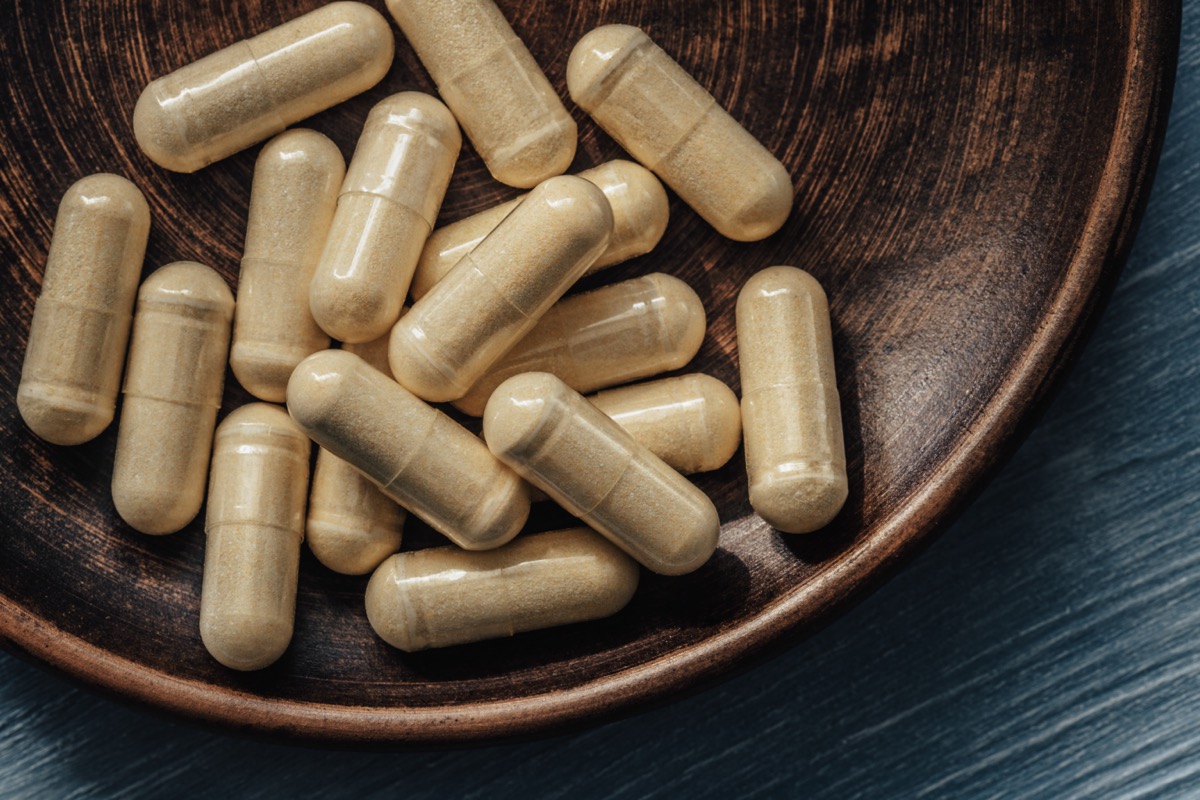
Vitamin B2 is also known as riboflavin.
Function in the body: Riboflavin helps to release energy from the food we eat to keep us going strong. It is needed for healthy cell growth, eyesight, skin, hair, and nails. It also helps to support the functions of other vitamins like B3 and B6.
Risks of deficiency: Sores at the corners of your mouth, swollen and cracked lips might be the first sign of riboflavin deficiency. A long-term deficiency can also cause cataracts and anemia. A deficiency of riboflavin can occur if you don't get enough in your diet or from drinking too much alcohol.
Risks of overuse: Vitamin B2 toxicity is very rare and even large amounts do not cause side effects. Use of vitamin B2 even at normal doses can cause your urine to turn yellow-orange. This is a normal side effect that is not harmful.
Top foods with vitamin B2:
- Beef liver (3 oz cooked)
- Breakfast cereals fortified with riboflavin
- Plain Yogurt fat-free (1 cup)
- Clams (3 oz cooked)
- Portabella mushrooms (grilled ½ cup)
- Almonds dry (roasted 1 ounce)
Vitamin B3
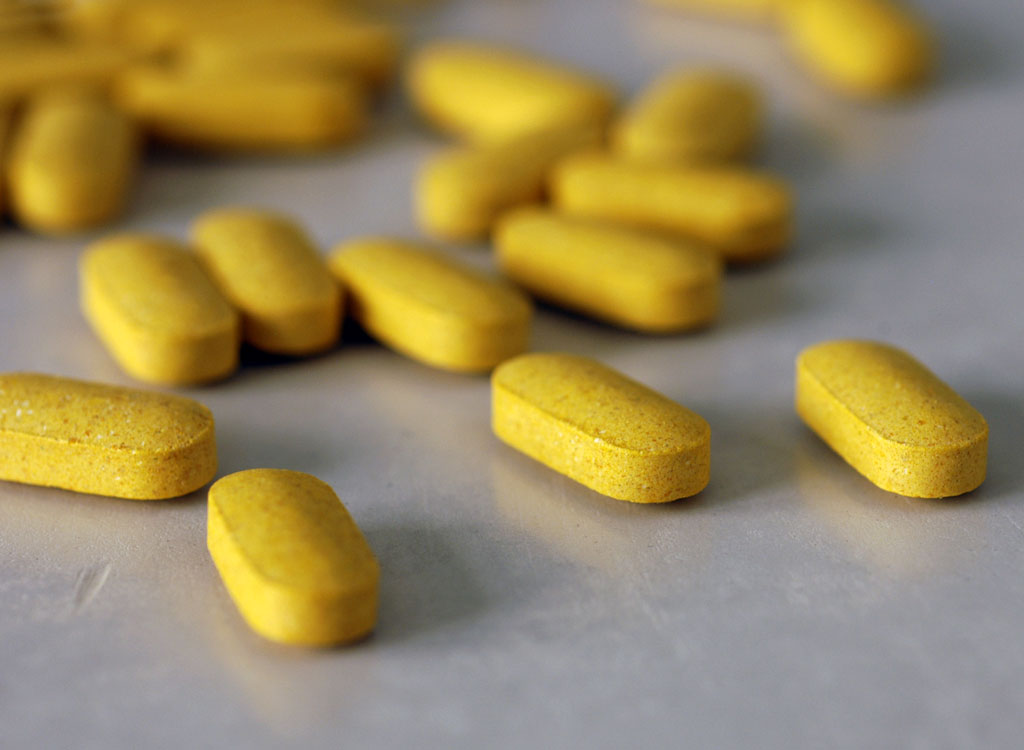
Vitamin B3 is also known as Niacin.
Function in the body: Niacin assists in providing energy to our cells and our body. It also helps to keep our gut, nerves, and skin healthy.
Risks of deficiency: Niacin deficiency can lead to a rare condition called pellagra. Pellagra can present with a bad rash to sun-exposed areas, dementia, or changes in memory as well as nausea and vomiting or even death. Or, as we say in medical school 'the 4 D's': Dermatitis, Dementia, Diarrhea, and Death. Pellagra usually occurs in people who are poorly nourished, such as people with alcohol use disorder, anorexia, or people with AIDS.
Risks of overuse: Niacin toxicity can cause GI symptoms, such as nausea, vomiting, and diarrhea. Liver toxicity is a severe complication of niacin overuse. Niacin at treatment doses can cause flushing, itching, tingling, and feelings of warmth on the face, neck, ears, and chest, but note that this is not harmful.
Top foods with vitamin B3:
- Beef liver (3 oz cooked)
- Chicken breast (3 oz grilled)
- Marinara sauce (1 cup)
- Canned tuna (3 ounces)
- Breakfast cereals (fortified with niacin)
Vitamin B9
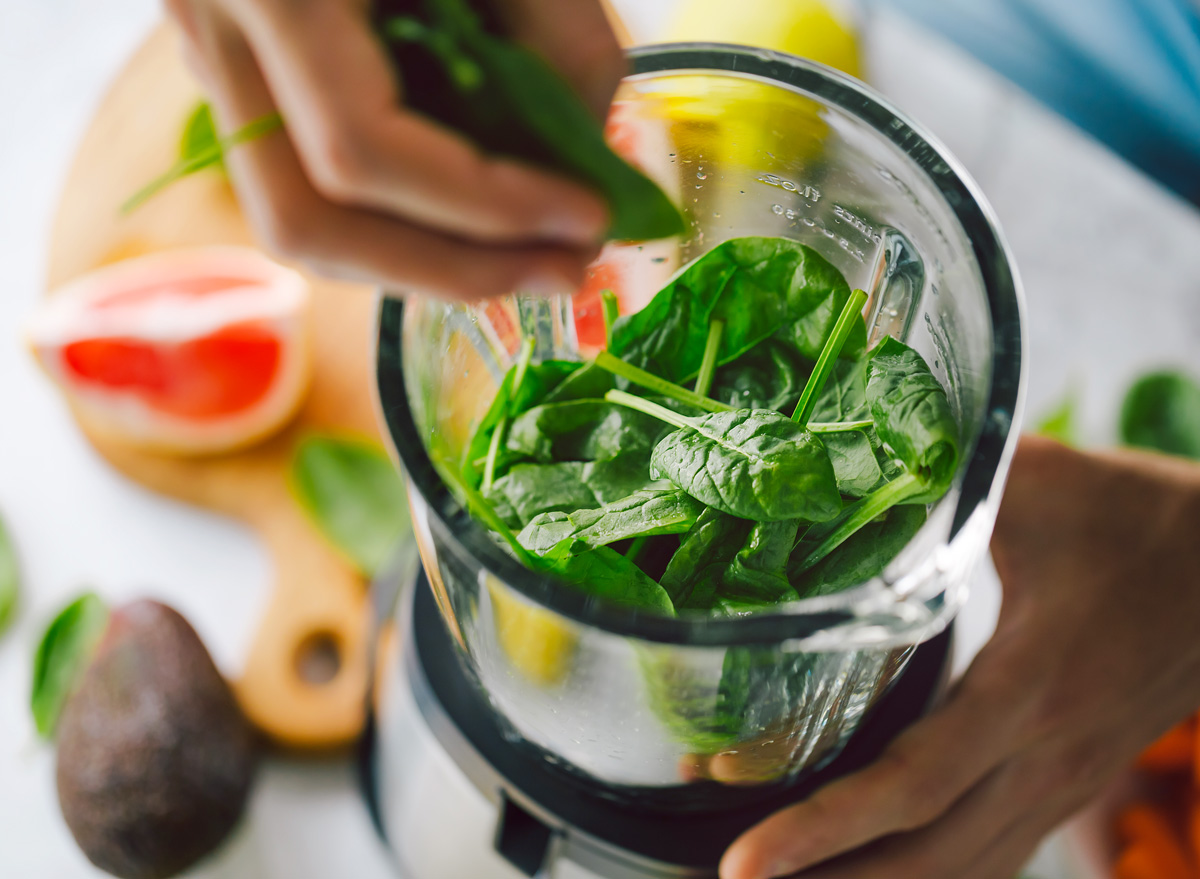
Vitamin B9 is also known as folate or folic acid
Function in the body: Cells require folate in order to divide and grow. Folate also helps to create the building blocks of our DNA called nucleic acids.
Risks of deficiency: Folate and B12 can cause a very specific type of shortage in our red blood cells that cause them to enlarge. Folate deficiency can also cause GI issues such as diarrhea and tongue abnormalities. A deficiency during pregnancy has been associated with an increased risk of brain and spinal cord defects in the baby. Certain people are more at risk for developing a deficiency, including people with an alcohol use disorder and people who have trouble with absorption such as people with inflammatory bowel disease. Certain medications can also cause a folate deficiency, such as methotrexate or anti-seizure medications such as phenytoin.
Risks of overuse: Folate toxicity is extremely rare because folate is water-soluble and eliminated very rapidly in the urine. However, taking excess amounts of folic acid on its own can actually mask a B12 deficiency, and this can lead to serious neurological side effects such as nerve damage, serious behavioral changes, and impaired coordination.
Top foods with vitamin B9:
- Beef liver (3 oz cooked)
- Frozen spinach (½ cup cooked)
- Black-eyed peas (½ cup cooked)
- Breakfast cereals (fortified with folate)
- White rice (½ cup cooked)
Vitamin B12

Vitamin B12 is also known as cobalamin.
Function in the body: Our nervous system depends on B12 for growth and development. It also plays a very important role in the development of DNA, RNA, proteins, and lipids (fats). Vitamin B12 plays a key role in the formation of red blood cells.
Risks of deficiency: Like folate, B12 deficiencies can cause red blood cells to enlarge and be less plentiful, which can lead to certain types of anemia, but unlike folate, a B12 deficiency can cause serious issues with our nervous system. Some of the problems with the nervous system include tingling and numbness in the hands and feet, unsteadiness, and confusion.
Certain people may be at risk for developing vitamin B12 deficiency, including vegetarians and people who have had gastrointestinal surgeries or digestive diseases that prevent absorption of vitamin B12. Certain medications can prevent your body from absorbing vitamin B12, such as metformin and acid-reducing medications like proton pump inhibitors.
Risks of overuse: Vitamin B12 toxicity is extremely rare because your body uses what it needs and eliminates the rest in the urine. Side effects of high doses of vitamin B12 used to treat a deficiency may include headache, nausea, vomiting, and diarrhea, although these are usually associated with the injection and intranasal forms of administration.
Top foods with vitamin B12:
- Beef liver (3 oz cooked)
- Clams (3 oz cooked)
- Nutritional yeast fortified with B12 (¼ cup)
- Atlantic salmon (3 oz cooked)
- Ground beef (3 oz cooked)
Gary Soffer, MD, FAAP, is director of the Smilow Integrative Medicine Program at Smilow Cancer Hospital at Yale New Haven, and a Yale Medicine physician who is board certified in adult and pediatric allergies and immunology; Annette Hood, PharmD, BCACP, is a clinical pharmacy specialist specializing in oncology in the Women's Infusion Clinic at Smilow; Maura Harrigan, MS, RDN, CSO, is certified in adult weight management and is a specialist in oncology nutrition through the Academy of Nutrition and Dietetics and is part of the Smilow Survivorship Clinic.

